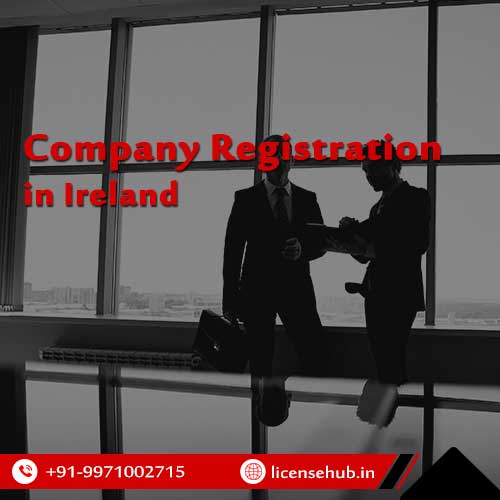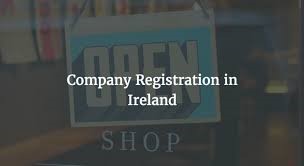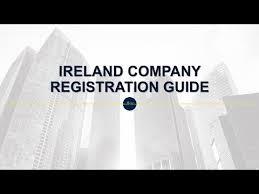Company Registration in Ireland

Company Registration in Ireland
What is Company Registration in Ireland?
Ireland is a member country of Europa Group. Ireland itself in two part i.e. one is still under control of United Kingdom i.e. Northern Ireland and Republic of Ireland” which after being a member of Europa Group has transforms to modern, high technology economy from largely agricultural society since 1973. The tremendous opportunity associated with its natural resources and climatic support, required to exploit for betterment of nation as well as citizen over there which is further elaborate in detail. It had a period of extraordinary growth from 1993 to 2007, becoming one of the world’s most dynamic, innovative and globalized economy, with extensive external trade and investment links.To utilize the resources of Ireland, either being a citizen or company or any other form of business need to incorporate or required to register in order to carry out the business in country. Therefore as the resources and opportunity are there, any person who is in plan to set up business and run an organization in Ireland has to go through the operation of law.
Nationals of the European Economic Area (EEA) or Switzerland do not need permission to set up business in Ireland. Generally, non-EEA nationals must get permission from the Minister for Justice and Equality in order to set up a business in Ireland. They may be eligible to apply for the immigrant investor program or the startup entrepreneur program. If they wish to start retail, catering, personal services or similar business they should apply for the business permission scheme.
What is corporate structure for company formation in Ireland?
As the Ireland, country of opportunity of growth provides variation on setting up a business as a sole trader, as a partnership or as a limited company. All type of structure you choose depends on the kind of business you are planning to do in Ireland, with whom applicant will be doing business/trade and your attitude to risk and rewards. It is advisable to get the advice of a lawyer or accountant when considering the structure for your business/trade. The Companies Registration Office (CRO) has more information about these different structure on its website (www.cro.ie.). Hence required information can be pulled from website.-
Sole Trader formation in Ireland
-
Partnership formation in Ireland
-
Limited Company formation in Ireland
What is Company formation procedure in Ireland?
 The first stage for incorporation has to be decided from the formation of entity and the name they choose to develop the brand/ identity of business. Suppose if the name is other than the original name then they need to register the name of business desire to incorporate first.
Specifically, registration of a business name is required only on the matter is as stated below:
The first stage for incorporation has to be decided from the formation of entity and the name they choose to develop the brand/ identity of business. Suppose if the name is other than the original name then they need to register the name of business desire to incorporate first.
Specifically, registration of a business name is required only on the matter is as stated below:
- An individual uses a business name which differs in any way from his/her true surname. It makes no difference whether the individuals’ first name or initials are added. So registration is required if, for example, Mr. John Murphy traded as Murphy Builders but not if he traded as Murphy or John Murphy);
- A firm uses a business name which differs in any way from the true names of all partners who are individuals and the corporate names of all partners which are bodies corporate;
- A company uses a business name which differs in any way from its full corporate name;
- A person having a place of business in the State carries on the business of publishing a newspaper.
- Form RBN1: for an individual
- Form RBN1A: for a partnership
- Form RBN1B: for a body corporate
-
Limited Company registration in Ireland
- A Private Company Limited by Shares (LTD company): The members' liability, if the company is wound up, is limited to the amount, if any, unpaid on the shares they hold. The maximum number of members is 149. An LTD company can have only one director if it chooses. An LTD company does not have stated objects and can undertake any activity. Part 2 of the Companies Act 2014 refers.
- A Designated Activity Company (DAC) – (limited by shares). The members' liability, if the company is wound up, is limited to the amount, if any, unpaid on the shares they hold. The maximum number of members is 149. A DAC company must have at least 2 directors. Constitution includes a memorandum and articles of association. The memorandum will include stated objects. Part 16 of the Companies Act 2014 refers
- A Designated Activity Company Limited by Guarantee (DAC) – (limited by guarantee). The members have liability under two headings; firstly, the amount, if any, that is unpaid on the shares they hold, and secondly, the amount they have undertaken to contribute to the assets of the company, in the event that it is wound up. The maximum number of members is 149. A DAC company must have at least 2 directors. Constitution includes a memorandum and articles of association. The memorandum will include stated objects. Part 16 of the Companies Act 2014 refers.
- A Company Limited by Guarantee (CLG) (limited by guarantee not having a share capital): The members' liability is limited to the amount they have undertaken to contribute to the assets of the company, in the event it is wound up, not exceeding the amount specified in the memorandum.
- A Public Limited Company (PLC): The liability of members is limited to the amount, if any, unpaid on shares held by them. It should be noted that it is unlawful to issue any form of prospectus except in compliance with the Companies Act 2014. The nominal value of the company's allotted share capital must not be less than €25,000, at least 25% of which must be fully paid up before the company commences business or exercises any borrowing powers. Part 17 of the Companies Act 2014 refers.
-
Single Member Company registration in Ireland
- A single member company is a company which is incorporated with one member, or whose membership is reduced to one person. However, the company must have at least two directors and a secretary. (Unless it is an LTD company, which can also be a single director company).
- The sole member registration in Ireland, if he/she so decides, can dispense with the holding of General Meetings, including Annual General Meetings (AGMs). The financial statements and reports that would normally be laid before the AGM of a company still need to be prepared and forwarded to the member. All company types can be single member companies.
-
Unlimited Company registration in Ireland
- Reserve a company name online using CRO which has a fee of €25
- Draft constitution of company i.e. MOA & AOA
- FORM A1 to be submitted along with other Incorporation documents stating details of the company name, its registered office, details of secretary and directors, their consent to acting as such, the subscribers and details of their shares. It incorporates a declaration that the requirements of the Companies Act have been complied with, and as to the activity which the company is being formed to engage in.
Registration Foreign Company Branch in Ireland
 Any company which is incorporated outside the State and establishes a Branch in the State must be registered with the Companies Registrar Office (CRO) under the Companies Act 2014. The registration must take place within one month of the establishment of the branch in the State
The Companies Act, 2014 requires disclosure in respect of branches opened in a Member State by certain types of company governed by the law of another State which are set out in Part 21 of said Act. There are some differences between the requirements imposed on a company from a Member State of the European Economic Area and companies from other countries. The European Economic Area (EEA) consists of the 28 member states of the European Union (EU).
Any company which is incorporated outside the State and establishes a Branch in the State must be registered with the Companies Registrar Office (CRO) under the Companies Act 2014. The registration must take place within one month of the establishment of the branch in the State
The Companies Act, 2014 requires disclosure in respect of branches opened in a Member State by certain types of company governed by the law of another State which are set out in Part 21 of said Act. There are some differences between the requirements imposed on a company from a Member State of the European Economic Area and companies from other countries. The European Economic Area (EEA) consists of the 28 member states of the European Union (EU).
- Companies from a Member State of the EEA file Form F12 to register.
- Companies from a non-EEA member state file Form F13 to register
Limited Partnership
A partnership in which a minimum of two persons involved to conduct business with a view of making a profit. It must consist of at least two persons and there is normally a maximum of 20.A partnership can be formed by natural persons and bodies corporate or combination thereof. It is not a separate legal entity. A partnership that adopts a name that does not consist of true names of the partners without any addition must register the name as a Business Name.
The Limited Partnership Act 1907facilitates the formation of a partnership in which some members can have limited liability for the debts of the firm. Their liability is limited to the extent of their contribution. As like a general partnership, a limited partnership is also not a separate legal entity.
The requirement of limited partnership as per applicable act it must consist of at least one general partner and one limited partner. The partnership should not consist of more than 20 persons or, if carrying on the business of banking, of more than 10 persons. The general partner(s) is/are liable for all the debts and obligations of the firm. The limited partners contribute a stated amount of capital and are not liable for the debts of the partnership beyond the amount contributed.
A limited partnership mandatory required to be registered with the CRO and in accordance with the 1907 Act; otherwise the partnership is a general partnership.
Required Steps
 To form a limited partnership, submit the following forms, together with the registration fee, to the CRO:
To form a limited partnership, submit the following forms, together with the registration fee, to the CRO:
- Form LP1 (Application for registration of a limited partnership) this form must be signed by both the general and limited partners.
- Form LP3 (Statement of the capital contributed by the limited partners) Statement of the capital contributed by the limited partner(s). The form must also be signed by any one of the general partners.
Step by step analysis of Corporate Taxation in Ireland?
How your business is taxed depends on whether it is incorporated as a company. If it is company then it is liable for Corporation tax (CT). If your business is not incorporated you are considered to be a sole trader and you pay tax under the Self-assessment system.Corporation tax in Ireland?
Companies resident in Ireland must pay Corporate Tax (CT) on their worldwide profits. These profits include both income and capital gains. Non-resident companies that trade through a branch or agency in Ireland must also pay CT. The CT that a company pays is charged according to Income Tax rules. A company must use the Revenue Online Service to file its return and pay any tax due under mandatory eFiling and ePayment.- 5% for trading income
- 25% for non-trading income, for example, rental and investment income.
Capital allowances for plant and machinery can be claimed at a rate of 12.5% per annum over eight years while those for most industrial buildings can be claimed at a rate of 4% per annum over 25 years. For energy efficient equipment, allowances are claimed at an accelerated rate of 100% in year 1.
A company might have incurred certain expenses in the three year period before they start Business/trading. These expenses can be included as a deduction when calculating a company’s profits (i.e. incorporation related expenses are also eligible revenue expenditure and can be claimed on Statement of Profit & Loss (SPL) in the 3 year period block).
A company may make a charitable donation to a Revenue approved charity or organization which is allowable expenditure on SPL which help to reduce the CT amount due. The minimum single donation is €250 per year.
Self-Assessment tax in Ireland?
Self-assessment is where you make your own assessment of the Income Tax (IT), Universal Social Charge (USC), Pay Related Social Insurance (PRSI) and Capital Gain Tax you should pay for a tax year. You must self-assess when filing your annual tax return. Under self-assessment, you must file your tax return on or before 31 October in the year after the year to which the return relates as per the prevailing Income Tax Act of Ireland. You must file Form 11 online through the Revenue Online Service (ROS). You can register for self-assessment by using the eRegistration service or by completing Form TR1. You do not need to register for self-assessment if:- You have Pay As You Earn (PAYE) income
- Your taxable non-PAYE income does not exceed €5,000 (Five Thousand euro only) and is taken into account in calculating your tax credits and standard rate cut-off point for PAYE purposes. It may also be taxed at source, providing the gross non-PAYE income does not exceed €30,000 (thirty thousand euro only). In this case you must submit a Form 12 online through PAYE Services in my Account as per the rule stated on Income Tax Act.
- within two months of the filing date: 5% of your tax due, up to €12,695
- Over two months: 10% of your tax, up to €63,485.
- you have a minimum annual income of €5,000
- You are aged between 16 and 66.
The abundance of resources built up with modern and technological economy and transparent government of Ireland do always have been attracting the investors on their country supported by friendly laws, regulation and rules. Moreover tax laws and incorporation rules for investors are always been welcoming address of government of Ireland.
#Company Registration in USA #Company Registration in China #Company Registration in Norway #Company Registration in Oman #Company Registration in Poland #Company Registration in Sweden #Company Registration in Thailand #Company Registration in Germany #Company Registration in Hongkong #Company Registration in Ireland #Company Registration in United Kingdom #Company Registration in UK #Company Registration in England #Company Registration in London #Company Registration in Wales #Company Registration in Newzealand #Company Registration in Australia #Company Registration in Canada #Company Registration in japan #Company Registration in turkey #Company Registration in bvi #Company Registration in british island #Company Registration in british virgin islands #Company Registration in Panama #Company Registration in Finland #Company Registration in FranceWhat We Offer
Packages & Pricing
6499
Basic
10000
Standard
19999
premium
FAQs For Private Limited Company Registration
LicenseHub - Copyright 2023. All rights reserved.
- Designed By-WebsApex

